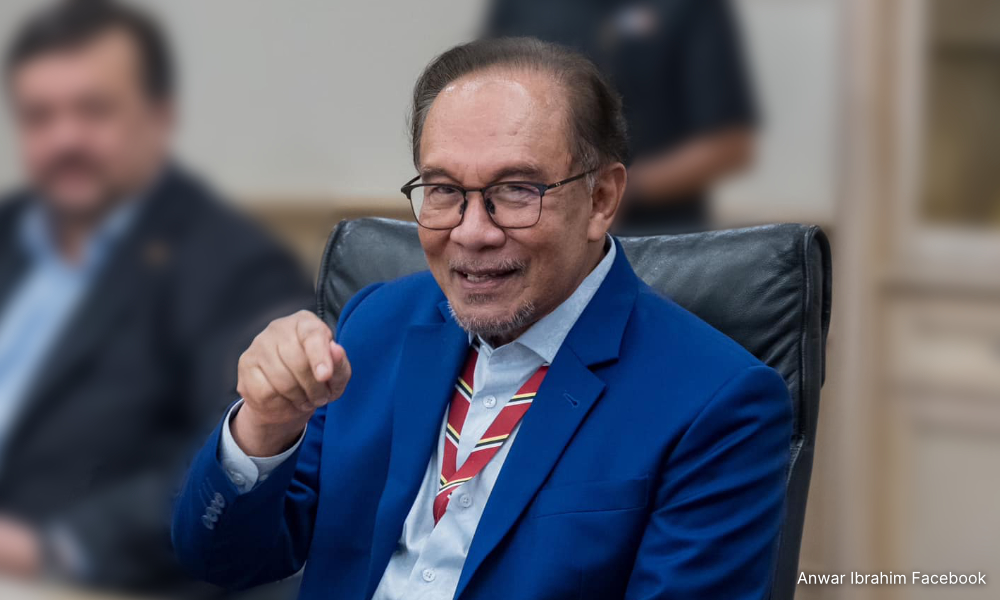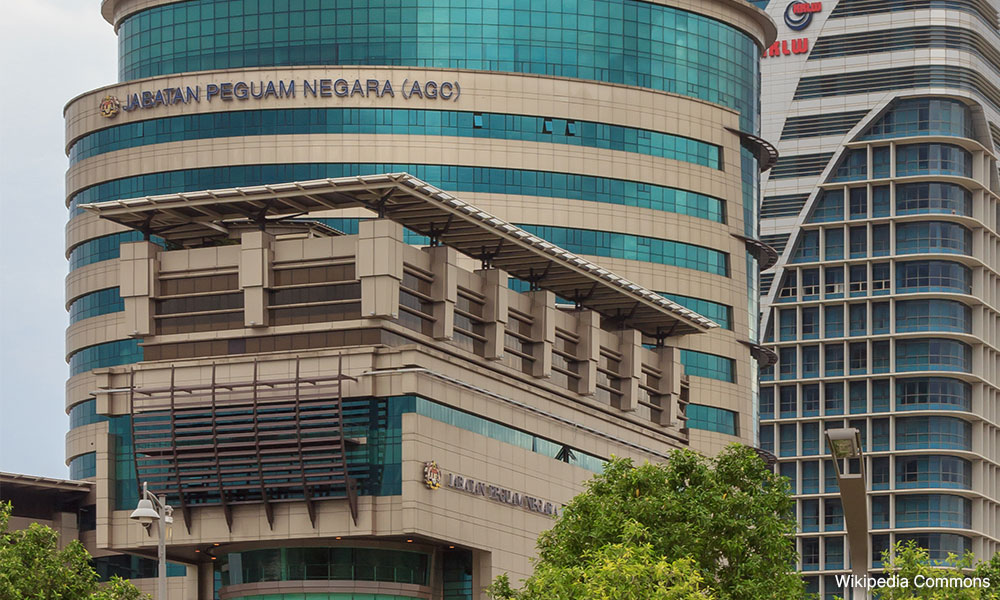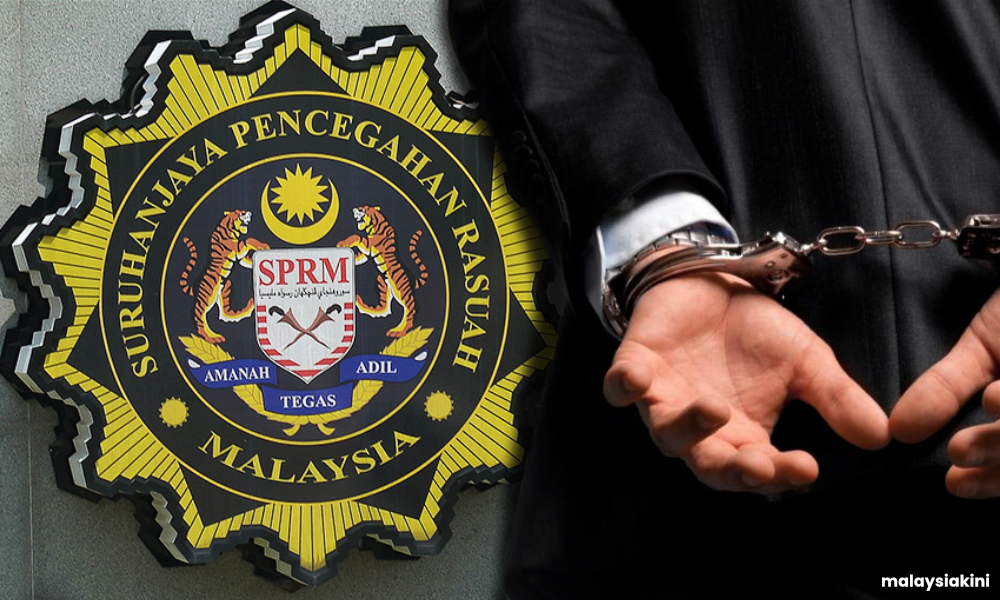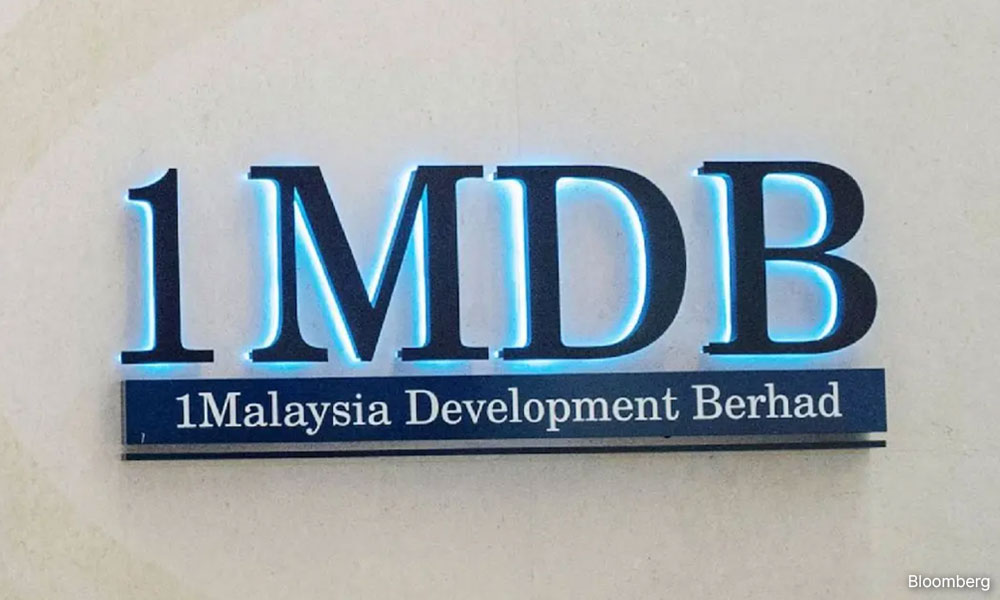Since becoming prime minister 22 months ago, Anwar Ibrahim has never minced his words on corruption.
In public meetings, media conferences, and even at the international level, he has used choice words to describe how corruption is destroying the country.
Anwar inherited a system that needed fixing. He had to tackle much-needed reforms to address deep-rooted corruption in politics and business, an economy dominated by entrenched tycoons and monopolies, a weak education system, and a society increasingly divided by race and religion.
Two days ago, he asked: “If you’re innocent, why refuse to declare assets?” as if such a practice would end corruption.
Anwar noted that political leaders, especially those in high positions like prime minister or finance minister, must be held to a higher standard of accountability.

“When we ask them to declare their assets, they get angry, they seek revenge. But what is there to be afraid of if you are innocent?” Anwar asked.
He said that corruption remains a significant issue and took issue with leaders who often hide behind race and religion to mask unethical behaviour.
“Some people talk about the Malays, about Islam, but in reality, they’re plundering the nation’s wealth,” he said.
Talk is one thing
To many Malaysians, this is a much-needed departure from the norm, where, in the past, many political leaders were part of the problem.
Despite such heavyweight support, why have we not seen results? Is it the laws? Do they need tightening and fine-tuning them to arm the people enforcing the laws with sufficient legislation? Or are those who enforce the law a bigger problem?
Nine years ago, the attorney-general was “presented” with a 103-page memorandum on proposals to revamp the MACC.

Prepared by several civil society groups, including the Bar Council, the Institute of Democracy and Economic Affairs (Ideas), the Centre to Combat Corruption and Cronyism (C4 Center), and Transparency International Malaysia (TI-M), it proposed amendments to the MACC Act, among other issues.
It was delivered to the office of then-attorney-general Abdul Gani Patail on the morning of July 28, 2015. Still, minutes earlier, he had already been unceremoniously removed from office, and the memorandum was handed over to an Attorney-General’s Chambers official.
The documents also suggested reforms to enhance existing anti-corruption mechanisms, supporting the government’s eradication of corruption.
Asset declaration, unexplained wealth legislation
Asset declaration is nothing new. World Bank research shows that over 160 countries have introduced financial disclosure systems. Asset declaration systems differ in scope, reach, sophistication, and transparency.
Over 55 percent of countries require the declared information to be public, not just the prime minister or the anti-corruption body.
However, the analysis shows that asset declarations are becoming a universal instrument to enhance public sector transparency and accountability, promote integrity, and prevent corruption.
Publicly available information from declarations increases scrutiny and complements the enforcement efforts of government agencies.

Transparency of public officials’ assets and interests helps build public sector integrity and promotes public trust in the government.
Asset declaration systems have also raised heated debates, especially concerning public disclosure of information from the declarations.
However, the problem in this country is that anything optional or voluntary is seldom complied with. It appears on paper as a showpiece, which is all but ignored.
Making the declaration of assets mandatory by law may sound draconian and may face opposition from warlords within the component parties in the government.
England has its “Unexplained Wealth Order”, which compels anyone to reveal the sources of their unexplained wealth. Persons who fail to account are liable to have their assets seized.
I then wrote: “This is the weapon that the Malaysian government needs to seize and repatriate millions of ‘dirty money’ which had been laundered through property purchases in the UK and purchase of expensive jewellery and paintings.
“It’s said that if you threw a stone in London’s Bayswater area, it would probably land on the head of a Malaysian Datuk who owns a property in the much-sought-after neighbourhood!
“On a more serious note, this legislation would be the most potent weapon to identify the properties and valuables purchased in Malaysia with money stolen from 1MDB.”

There’s also a “living beyond your means” legislation, which Hong Kong has successfully used to fight corruption.
Its Prevention of Bribery Ordinance makes it an offence if a public officer cannot explain how he or she maintains a standard of living above that which is commensurate with his or her present or past official emoluments.
Similarly, it would be an offence if a public officer controls financial resources or property disproportionate to his or her present or past official emolument.
The onus thus shifts to the individual. Unless he or she gives a satisfactory explanation to the court as to how he or she was able to maintain such a standard of living or how such pecuniary resources or property came under his control, be guilty of an offence.
Will proposals see the light of day?
The memorandum contained proposals on these lines, but it may not be wrong to say they have been gathering dust in a steel cabinet in Putrajaya.
Such laws will help identify criminals and financial institutions that facilitate the management of such individuals’ money.
The memorandum should be “resurrected” from its steel “grave”, and copies should be distributed to lawmakers and related parties to amend existing laws and arm enforcers with comprehensive legislation.
But is there political will and determination to see it through, or will political warlords prevail to protect themselves and their cronies? - Mkini
R NADESWARAN joined a few like-minded citizens and civil society groups nine years ago to bring about amendments to the law on ill-gotten wealth. Sad to say, we have not gotten anywhere. Comments: citizen.nades22@gmail.com.
The views expressed here are those of the author/contributor and do not necessarily represent the views of MMKtT.



No comments:
Post a Comment
Note: Only a member of this blog may post a comment.